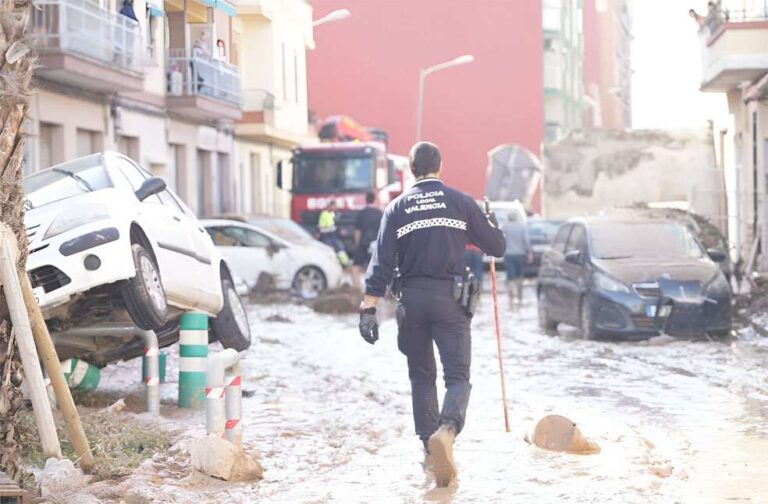Spain: Emergency teams in Spain are continuing their search for dozens of people still unaccounted for in what has become the country’s most severe flooding disaster in decades. More than 200 fatalities have been reported, mostly in the Valencia region, and the death toll is likely to increase.
Around 1,700 soldiers are already working on search and rescue operations in the Valencia region, although hope of finding more survivors is dwindling.
The floods have destroyed bridges, buried towns in mud, and left many isolated communities without essential supplies like water, food, or electricity. Some locals believe that more lives could have been saved if authorities had acted faster in issuing flood warnings.
Although the worst of the weather has moved past Valencia and the Mediterranean coast, southern Spain remains under alert, with potential for additional heavy rain through the next day. This includes the Huelva region, where severe downpours have already caused significant damage, and Cartaya, which recorded nearly two months’ rainfall in just 10 hours.
Further south, in Jerez, hundreds of families were forced to evacuate as rising river levels posed a threat. Authorities fear that more fatalities may be discovered among drivers trapped in their vehicles by floodwaters.
Meanwhile, questions remain about how disaster relief services acted, with accusations that they were too slow, and whether Spain has an adequate warning system for natural disasters.
Torrential rains caused deadly flooding and extensive damage in the province of Valencia, located in eastern Spain. These #Landsat images show the extent of flooding as of October 30, 2024.
More: https://t.co/nuE0Vr7cNT pic.twitter.com/EGOaJ8mcTy
— NASA Earth (@NASAEarth) November 1, 2024
The civil protection agency, overseen by the regional government, issued an emergency alert to the phones of people in and around the city of Valencia, by which time the flood water was swiftly rising in many areas and in some cases already wreaking havoc.
Thousands of volunteers are currently helping the Spanish military and emergency services with the rescue and clean-up operation, and Valencia’s regional president, A further 500 soldiers are being deployed to the Valencia region amid criticism of local authorities over their response to the catastrophic flooding.
Spain’s Prime Minister Pedro Sanchez expressed gratitude on social media, thanking volunteers and commending them as a “symbol of solidarity and the boundless dedication of Spanish society.” Prime Minister pledged that his government would take all necessary actions to assist those affected by the disaster.
In Paiporta, a town heavily impacted with over 60 reported deaths, residents voiced frustration over the slow arrival of aid. Authorities have detained dozens for looting, as some individuals, driven by desperation, targeted an abandoned supermarket.
The disaster was partly worsened by a prolonged dry spell throughout the year, leaving the soil across eastern and southern Spain unable to absorb water efficiently.
Additionally, climate change has likely intensified the situation; a preliminary report from World Weather Attribution (WWA), a coalition of scientists studying climate impacts, indicated that rainfall was 12% heavier due to global warming, making such an event twice as likely.
The disaster has highlighted the urgent need for enhanced preparedness in the face of intensifying weather extremes, underscoring the impact of climate change on vulnerable regions.
With support promised from the government and the solidarity of volunteers, the affected regions face a long road to recovery, but the resilience of Spanish society remains unwavering.



